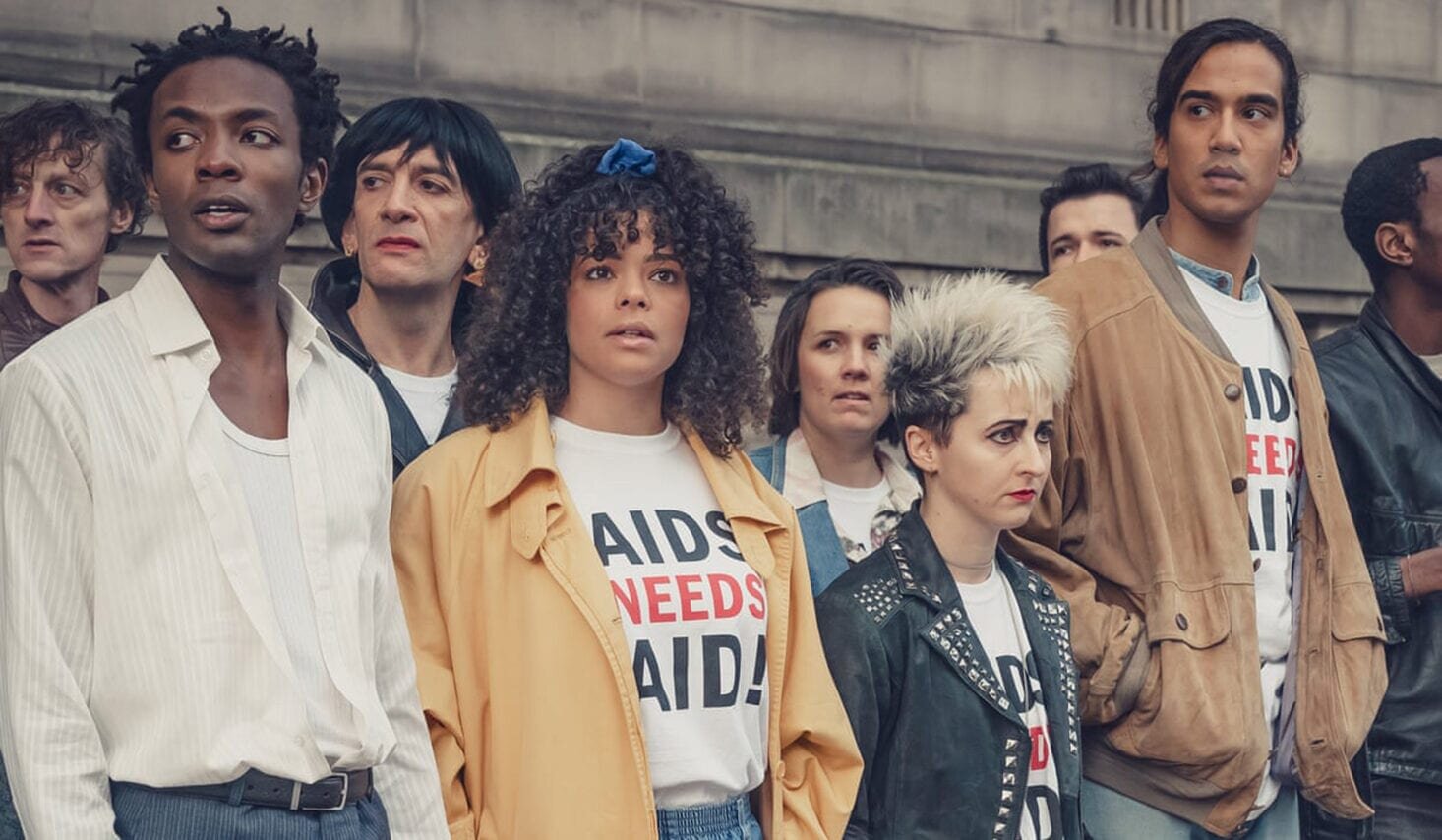A powerful new drama set during the AIDS crisis in now streaming on HBO Max
The prospect of an AIDS drama makes some people immediately averse for many reasons- the tough sit, the brutal blows that it will inevitably land on the viewer. You don’t tend to think it will be an enjoyable experience. And yet, Russell T. Davies (Queer as Folk) has accomplished, paradoxically enough, just that with It’s a Sin, a story about five young people excited to start their adult lives in London. It is joyfully spirited and alive, which makes its ultimate impact that much more devastating and hard to shake off.
Pop singer Olly Alexander stars as Ritchie, a closeted 18-year-old in 1981 desperate to leave his isolated, upper middle class upbringing on the Isle of Wight to go to college in London, where he imagines he can be his authentic self. Once out of the constricting presence of his conservative parents he does just that, gleefully giving himself over to the hedonistic pleasures of life in the big city, a world of seemingly endless men now opened up to him. Other guys we follow are Roscoe (Omari Douglas), fleeing from his religious Nigerian parents determined to “pray the gay” out of him, and Colin (Callum Scott Howells), a sweet, shy Welsh lad who comes to work on Savile Row and evades the predatory advances of his creepy old boss. He’s rescued by co-worker Neil Patrick Harris, who introduces him to the kind of domestic life modeled with his long term partner Juan Pablo that Colin didn’t know was possible. These guys eventually befriend each other and a larger group forms a kind of adopted family that takes the place of secretive relations they maintain with their practically or willingly estranged biological ones. Their coming of age encompasses a spirit of free flowing sexuality in the bars and clubs of 80’s London, as a fun loving energy infuses their embrace of life and each other, so eager are they for the future to arrive.
Life changed very quickly for this group of friends
But for all of us, there’s that underscoring of dread, as we know the burgeoning AIDS crisis is developing across the pond and about to make its way to the UK as well. There was possibly an even more ignorant and delayed response to the virus there, since it was already circulating in America while our protagonists continue to live life oblivious to the risks. But tragedy strikes soon enough among this group of friends and devastating it is to watch, as the cold hearted familiarity of a negligent government and societal homophobia add up to a generation of young men simply disappearing from the cities, back to their homes, never to be seen again. We know this story, as previous AIDS dramas have told us, but the setting of this one in London tells it from a different perspective, and what hits really hard is in how intimately we come to know these characters- Ritchie, Colin, Roscoe, Ash, and Jill (Ritchie’s best girl friend, the straight mothering angel who takes it upon herself to care for her gay friends and becomes an activist as the virus ravages the community through the decade). At just five episodes, it’s a whirlwind, moving from joy to cold, brutal devastation, and Olly Alexander’s Ritchie is perhaps the most complex character, who evolves quickly from an awkward teen to an insatiable party hound, yet one who continually harbors the shame and internalized homophobia instilled in him by his parents that propels him to support Margaret Thatcher and believe it’s wrong to teach children about gays, who continues even after his diagnosis to sleep around and infect other people. At times unlikable and selfish, yet never less than authentic and convincing in his first starring role, Alexander is a big standout, along with Lydia West’s Jill, and Keeley Hawes as Ritchie’s mother Valerie, who owns every moment of the harrowing final episode as she confronts the truth about her son’s life and illness.
It’s a Sin is an open hearted, shattering drama that is equal parts fun, sexy, tearjerking and powerful in its celebration of these characters as young boys who shouldn’t have had to die for the “sin” of embracing life and wanting all they could get out of it. It shows a new generation how hard it was to come of age at a time when this disease spread unchecked around the globe and affected a community unacknowledged and uncared for by mainstream society, who were left to die often times alone, before ever reaching 30 or 40 years old. You’ll be thinking about it long after it’s over, and not just about the sad parts.
Grade: A
Olly Alexander makes a powerful debut as the lead of It’s a Sin




